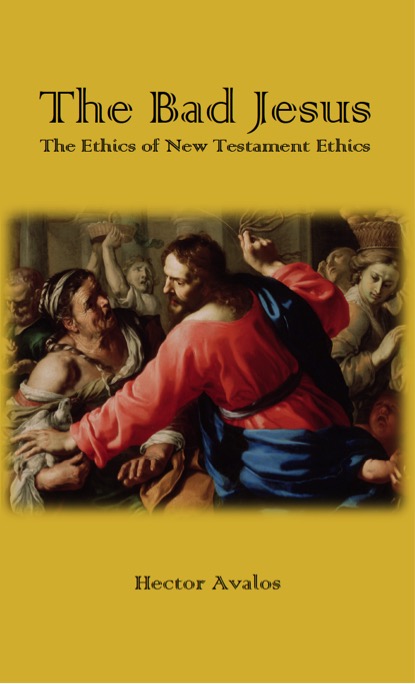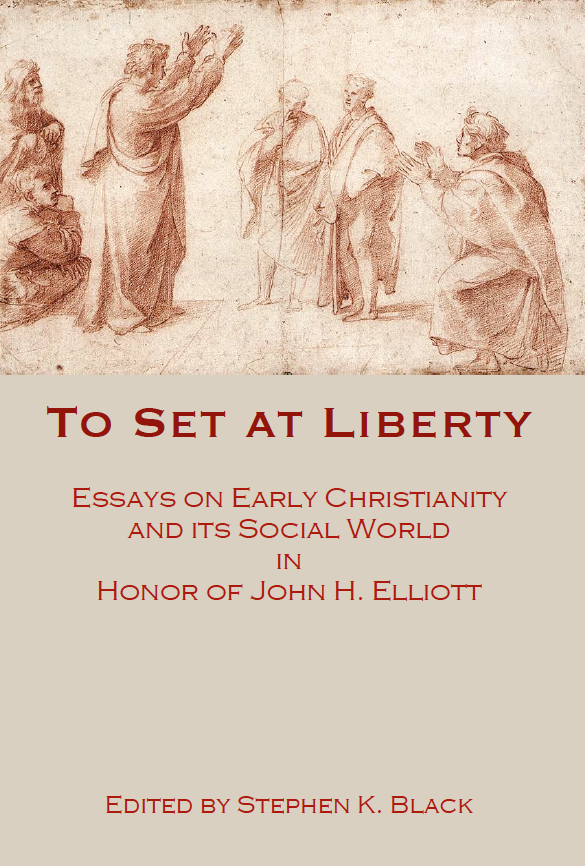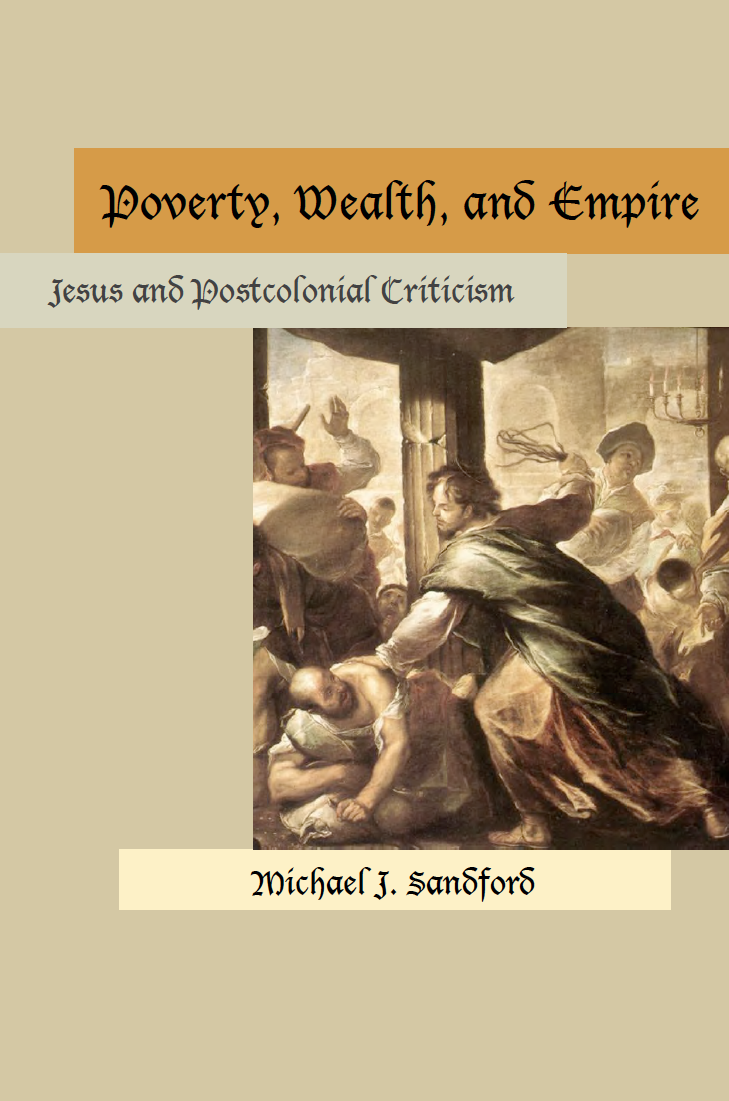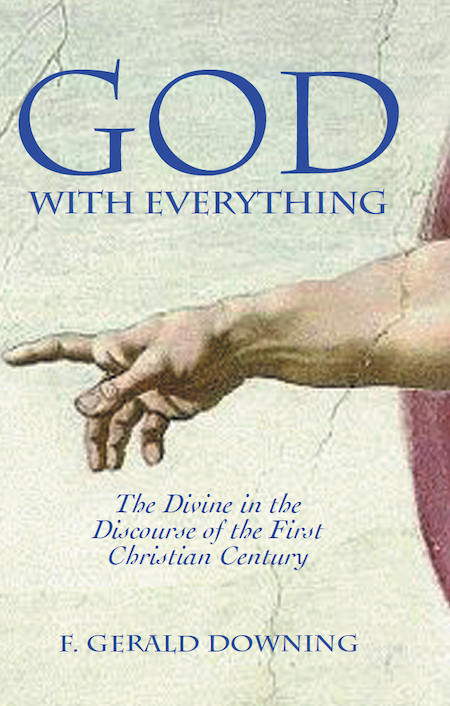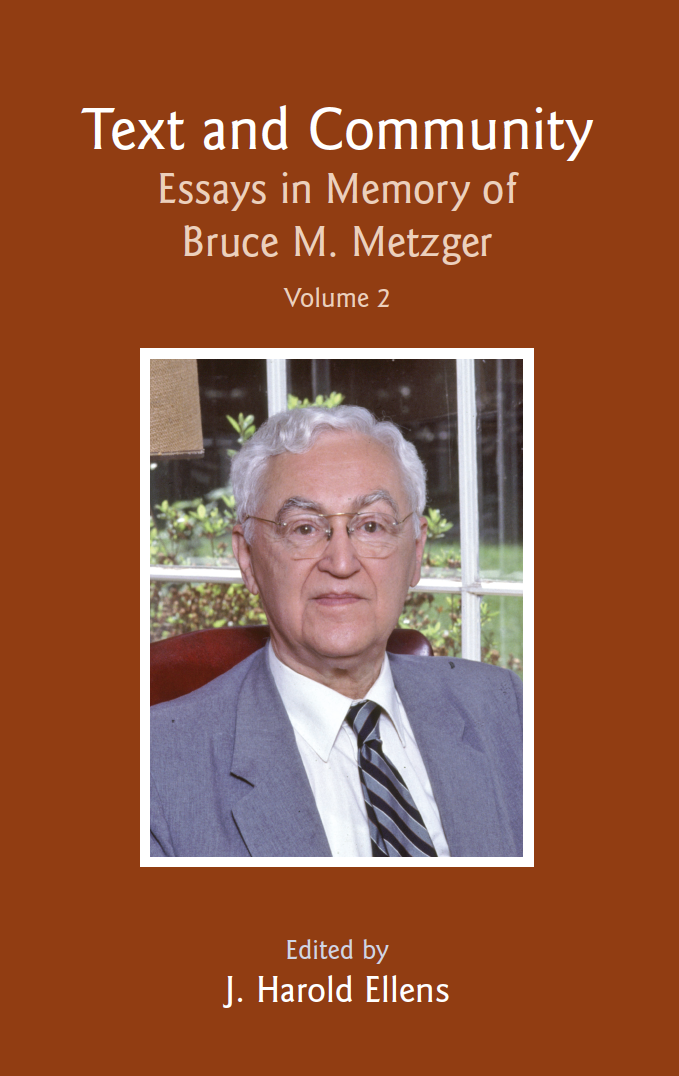The Bad Jesus: The Ethics of New Testament Ethics
Published: Apr 2015
£25.00 – £60.00
Did Jesus ever do anything wrong? Judging by the vast majority of books on New Testament ethics, the answer is a resounding No. Writers on New Testament ethics generally view Jesus as the paradigm of human standards and behaviour. But since the historical Jesus was a human being, must he not have had flaws, like everyone else?
The notion of a flawless human Jesus is a paradoxical oddity in New Testament ethics. According to Avalos, it shows that New Testament ethics is still primarily an apologetic enterprise despite its claim to rest on critical and historical scholarship.
The Bad Jesus is a powerful and challenging study, presenting detailed case studies of fundamental ethical principles enunciated or practised by Jesus but antithetical to what would be widely deemed 'acceptable' or 'good' today. Such topics include Jesus' supposedly innovative teachings on love, along with his views on hate, violence, imperialism, animal rights, environmental ethics, Judaism, women, disabled persons and biblical hermeneutics.
After closely examining arguments offered by those unwilling to find any fault with the Jesus depicted in the Gospels, Avalos concludes that current treatments of New Testament ethics are permeated by a religiocentric, ethnocentric and imperialistic orientation. But if it is to be a credible historical and critical discipline in modern academia, New Testament ethics needs to discover both a Good and a Bad Jesus.
The Bad Jesus: The Ethics of New Testament Ethics
£25.00 – £60.00
Did Jesus ever do anything wrong? Judging by the vast majority of books on New Testament ethics, the answer is a resounding No. Writers on New Testament ethics generally view Jesus as the paradigm of human standards and behaviour. But since the historical Jesus was a human being, must he not have had flaws, like everyone else?
The notion of a flawless human Jesus is a paradoxical oddity in New Testament ethics. According to Avalos, it shows that New Testament ethics is still primarily an apologetic enterprise despite its claim to rest on critical and historical scholarship.
The Bad Jesus is a powerful and challenging study, presenting detailed case studies of fundamental ethical principles enunciated or practised by Jesus but antithetical to what would be widely deemed 'acceptable' or 'good' today. Such topics include Jesus' supposedly innovative teachings on love, along with his views on hate, violence, imperialism, animal rights, environmental ethics, Judaism, women, disabled persons and biblical hermeneutics.
After closely examining arguments offered by those unwilling to find any fault with the Jesus depicted in the Gospels, Avalos concludes that current treatments of New Testament ethics are permeated by a religiocentric, ethnocentric and imperialistic orientation. But if it is to be a credible historical and critical discipline in modern academia, New Testament ethics needs to discover both a Good and a Bad Jesus.
Recent Research on the Historical Jesus
Published: Sep 2014
£60.00
Over the past two hundred years, several have ventured to write a history of Jesus, but few have discussed their method of writing about the past with any depth. Unspoken assumptions or bias often dictate what the historian will find. The fact that there are so many conflicting pictures of Jesus compounds the problem. In the last thirty years of Jesus research, which have been identified as the Third Quest for the historical Jesus, historians have agreed that Jesus makes the most sense within a Jewish context, a setting that allows historians to write about Jesus from various historical approaches.
Simpson addresses the issue of method in historical Jesus research by looking at two prominent historians within the Third Quest —John Meier and James Dunn. Both Meier and Dunn typify distinct approaches to the historical Jesus, and both claim to be a part of the Third Quest. Simpson analyses their philosophy of history and historical method. In the second part of the book, Simpson looks at how Meier and Dunn handle certain key events in the life of Jesus. The treatment of these events serves as a way of highlighting the drawbacks and advantages of each method.
These distinct approaches point to the tensions that make up the Third Quest and illustrate how the concerns of recent research, evolving over a short period of time, have brought old questions to the surface in new ways. By describing the current situation of historical Jesus research as evidenced by Meier and Dunn, Simpson maps out some promising lines of future research.
Recent Research on the Historical Jesus
£60.00
Over the past two hundred years, several have ventured to write a history of Jesus, but few have discussed their method of writing about the past with any depth. Unspoken assumptions or bias often dictate what the historian will find. The fact that there are so many conflicting pictures of Jesus compounds the problem. In the last thirty years of Jesus research, which have been identified as the Third Quest for the historical Jesus, historians have agreed that Jesus makes the most sense within a Jewish context, a setting that allows historians to write about Jesus from various historical approaches.
Simpson addresses the issue of method in historical Jesus research by looking at two prominent historians within the Third Quest —John Meier and James Dunn. Both Meier and Dunn typify distinct approaches to the historical Jesus, and both claim to be a part of the Third Quest. Simpson analyses their philosophy of history and historical method. In the second part of the book, Simpson looks at how Meier and Dunn handle certain key events in the life of Jesus. The treatment of these events serves as a way of highlighting the drawbacks and advantages of each method.
These distinct approaches point to the tensions that make up the Third Quest and illustrate how the concerns of recent research, evolving over a short period of time, have brought old questions to the surface in new ways. By describing the current situation of historical Jesus research as evidenced by Meier and Dunn, Simpson maps out some promising lines of future research.
On the Historicity of Jesus: Why We Might Have Reason for Doubt
Published: Jun 2014
£25.00 – £60.00
The assumption that Jesus existed as a historical person has occasionally been questioned in the course of the last hundred years or so, but any doubts that have been raised have usually been put to rest in favor of imagining a blend of the historical, the mythical and the theological in the surviving records of Jesus.
Carrier re-examines the whole question and finds compelling reasons to suspect the more daring assumption is correct. He lays out extensive research on the evidence for Jesus and the origins of Christianity and poses the key questions that must now be answered if the historicity of Jesus is to survive as a dominant paradigm.
Carrier contrasts the most credible reconstruction of a historical Jesus with the most credible theory of Christian origins if a historical Jesus did not exist. Such a theory would posit that the Jesus figure was originally conceived of as a celestial being known only through private revelations and hidden messages in scripture; then stories placing this being in earth history were crafted to communicate the claims of the gospel allegorically; such stories eventually came to be believed or promoted in the struggle for control of the Christian churches that survived the tribulations of the first century.
Carrier finds the latter theory more credible than has been previously imagined. He explains why it offers a better explanation for all the disparate evidence surviving from the first two centuries of the Christian era. He argues that we need a more careful and robust theory of cultural syncretism between Jewish theology and politics of the second-temple period and the most popular features of pagan religion and philosophy of the time. For anyone intent on defending a historical Jesus, this is the book to challenge.
On the Historicity of Jesus: Why We Might Have Reason for Doubt
£25.00 – £60.00
The assumption that Jesus existed as a historical person has occasionally been questioned in the course of the last hundred years or so, but any doubts that have been raised have usually been put to rest in favor of imagining a blend of the historical, the mythical and the theological in the surviving records of Jesus.
Carrier re-examines the whole question and finds compelling reasons to suspect the more daring assumption is correct. He lays out extensive research on the evidence for Jesus and the origins of Christianity and poses the key questions that must now be answered if the historicity of Jesus is to survive as a dominant paradigm.
Carrier contrasts the most credible reconstruction of a historical Jesus with the most credible theory of Christian origins if a historical Jesus did not exist. Such a theory would posit that the Jesus figure was originally conceived of as a celestial being known only through private revelations and hidden messages in scripture; then stories placing this being in earth history were crafted to communicate the claims of the gospel allegorically; such stories eventually came to be believed or promoted in the struggle for control of the Christian churches that survived the tribulations of the first century.
Carrier finds the latter theory more credible than has been previously imagined. He explains why it offers a better explanation for all the disparate evidence surviving from the first two centuries of the Christian era. He argues that we need a more careful and robust theory of cultural syncretism between Jewish theology and politics of the second-temple period and the most popular features of pagan religion and philosophy of the time. For anyone intent on defending a historical Jesus, this is the book to challenge.
Poverty, Wealth, and Empire: Jesus and Postcolonial Criticism
Published: Mar 2014
£45.00
Poverty, Wealth, and Empire presents an antidote to the liberal Jesuses that are constantly being constructed by theologians and historians in universities and seminaries in the West. Sandford's programme is to pay attention to those texts where Jesus appears hostile to his audiences, or even invokes the idea of divine judgment and violence against certain groups. Drawing on a variety of texts in the synoptic gospels, Sandford finds violent denouncements of the rich and those who neglect the needy to be a consistent theme in Jesus' teaching.
Rather than deploying biblical texts to support an anti-imperial or liberationist agenda, Sandford foregrounds troubling and problematic texts. Among them are wisdom sayings that justify poverty, texts that denigrate particular ethnic groups, and the ideology inherent in Jesus' teachings about the 'the Kingdom of God'. On such a basis Sandford is able to call into question the effectiveness of mainline Christian scholarly interpretations of Jesus in dealing with the most profound ethical problems of our time: poverty, domination and violence.
Always alert to the assumptions and prejudices of much Western New Testament scholarship, Sandford draws attention to its intellectual contradictions, and, furthermore, to the way in which this scholarship has sometimes served to undergird and justify systems of oppression —in particular by its demonstrable dodging of the issue of material poverty and its causes. Building on recent debates in postcolonial biblical criticism, Sandford offers a decidedly 'illiberal' reading of Jesus' sayings on divine judgment, focusing on the paradoxical idea of a 'nonviolent' Jesus who nevertheless pronounces divine violence upon the rich.
Poverty, Wealth, and Empire: Jesus and Postcolonial Criticism
£45.00
Poverty, Wealth, and Empire presents an antidote to the liberal Jesuses that are constantly being constructed by theologians and historians in universities and seminaries in the West. Sandford's programme is to pay attention to those texts where Jesus appears hostile to his audiences, or even invokes the idea of divine judgment and violence against certain groups. Drawing on a variety of texts in the synoptic gospels, Sandford finds violent denouncements of the rich and those who neglect the needy to be a consistent theme in Jesus' teaching.
Rather than deploying biblical texts to support an anti-imperial or liberationist agenda, Sandford foregrounds troubling and problematic texts. Among them are wisdom sayings that justify poverty, texts that denigrate particular ethnic groups, and the ideology inherent in Jesus' teachings about the 'the Kingdom of God'. On such a basis Sandford is able to call into question the effectiveness of mainline Christian scholarly interpretations of Jesus in dealing with the most profound ethical problems of our time: poverty, domination and violence.
Always alert to the assumptions and prejudices of much Western New Testament scholarship, Sandford draws attention to its intellectual contradictions, and, furthermore, to the way in which this scholarship has sometimes served to undergird and justify systems of oppression —in particular by its demonstrable dodging of the issue of material poverty and its causes. Building on recent debates in postcolonial biblical criticism, Sandford offers a decidedly 'illiberal' reading of Jesus' sayings on divine judgment, focusing on the paradoxical idea of a 'nonviolent' Jesus who nevertheless pronounces divine violence upon the rich.
Beyond the Quest for the Historical Jesus: Memoir of a Discovery
Published: Sep 2012
£18.95
In the past forty years, while historical-critical studies were seeking with renewed intensity to reconstruct events behind the biblical texts, not least the life of Jesus, two branches of literary studies were finally reaching maturity. First, researchers were recognizing that many biblical texts are rewritings or transformations of older texts that still exist, thus giving a clearer sense of where the biblical texts came from; and second, studies in the ancient art of composition clarified the biblical texts' unity and purpose, that is to say, where biblical texts were headed.
The primary literary model behind the gospels, Brodie argues, is the biblical account of Elijah and Elisha, as R.E. Brown already saw in 1971. In this fascinating memoir of his life journey, Tom Brodie, Irishman, Dominican priest, and biblical scholar, recounts the steps he has taken, in an eventful life in many countries, to his conclusion that the New Testament account of Jesus is essentially a rewriting of the Septuagint version of the Hebrew Bible, or, in some cases, of earlier New Testament texts. Jesus' challenge to would-be disciples (Luke 9.57-62), for example, is a transformation of the challenge to Elijah at Horeb (1 Kings 19), while his journey from Jerusalem and Judea to Samaria and beyond (John 2.23 —4.54) is deeply indebted to the account of the journey of God's Word in Acts 1 —8.
The work of tracing literary indebtedness and art is far from finished but it is already possible and necessary to draw a conclusion: it is that, bluntly, Jesus did not exist as a historical individual. This is not as negative as may at first appear. In a deeply personal coda, Brodie begins to develop a new vision of Jesus as an icon of God's presence in the world and in human history.
Beyond the Quest for the Historical Jesus: Memoir of a Discovery
£18.95
In the past forty years, while historical-critical studies were seeking with renewed intensity to reconstruct events behind the biblical texts, not least the life of Jesus, two branches of literary studies were finally reaching maturity. First, researchers were recognizing that many biblical texts are rewritings or transformations of older texts that still exist, thus giving a clearer sense of where the biblical texts came from; and second, studies in the ancient art of composition clarified the biblical texts' unity and purpose, that is to say, where biblical texts were headed.
The primary literary model behind the gospels, Brodie argues, is the biblical account of Elijah and Elisha, as R.E. Brown already saw in 1971. In this fascinating memoir of his life journey, Tom Brodie, Irishman, Dominican priest, and biblical scholar, recounts the steps he has taken, in an eventful life in many countries, to his conclusion that the New Testament account of Jesus is essentially a rewriting of the Septuagint version of the Hebrew Bible, or, in some cases, of earlier New Testament texts. Jesus' challenge to would-be disciples (Luke 9.57-62), for example, is a transformation of the challenge to Elijah at Horeb (1 Kings 19), while his journey from Jerusalem and Judea to Samaria and beyond (John 2.23 —4.54) is deeply indebted to the account of the journey of God's Word in Acts 1 —8.
The work of tracing literary indebtedness and art is far from finished but it is already possible and necessary to draw a conclusion: it is that, bluntly, Jesus did not exist as a historical individual. This is not as negative as may at first appear. In a deeply personal coda, Brodie begins to develop a new vision of Jesus as an icon of God's presence in the world and in human history.
Reconfiguring Mark’s Jesus: Narrative Criticism After Poststructuralism
Published: Oct 2011
£60.00
As readers, we are captivated by the resemblance of literary characters to actual persons. But it is precisely this illusion that allows characterization to play host to dominant ideologies of both 'literature' and 'the self'. This is especially true when we confuse narrative figures and historical persons.
Over the last thirty years, New Testament narrative criticism has developed into a major methodological approach in Biblical Studies. But for all its ingenuity and promise, it has been reluctant to let go of conventional historical-critical moorings. As a result, one is hard pressed to find any substantive difference between reconstructions of the historical Jesus and narrative-critical readings of the character Jesus.
Reconfiguring Mark's Jesus endeavors to reorient and advance narrative criticism by analysing the Gospel of Mark's characterization of the figure of Jesus in relation to three other fundamental aspects of narrative discourse: focalization, dialogue, and plot. This intertextual reading, in which Mark is set alongside two ancient novels — Leucippe and Clitophon and the Life of Aesop —problematizes implicitly modern notions of literary characters as autonomous 'agents', as well as 'naturalizing' treatments of literary characters as historical referents. Highlighting the inherent ambiguity of narrative discourse, particularly with regard to referentiality, human agency, and the complex relationship between literature and history, Reconfiguring Mark's Jesus illustrates the diverse and complex ways that narratives, of necessity, produce fragmented characters that refract the inherent paradoxes of narrative itself and of human subjectivity.
Reconfiguring Mark’s Jesus: Narrative Criticism After Poststructuralism
£60.00
As readers, we are captivated by the resemblance of literary characters to actual persons. But it is precisely this illusion that allows characterization to play host to dominant ideologies of both 'literature' and 'the self'. This is especially true when we confuse narrative figures and historical persons.
Over the last thirty years, New Testament narrative criticism has developed into a major methodological approach in Biblical Studies. But for all its ingenuity and promise, it has been reluctant to let go of conventional historical-critical moorings. As a result, one is hard pressed to find any substantive difference between reconstructions of the historical Jesus and narrative-critical readings of the character Jesus.
Reconfiguring Mark's Jesus endeavors to reorient and advance narrative criticism by analysing the Gospel of Mark's characterization of the figure of Jesus in relation to three other fundamental aspects of narrative discourse: focalization, dialogue, and plot. This intertextual reading, in which Mark is set alongside two ancient novels — Leucippe and Clitophon and the Life of Aesop —problematizes implicitly modern notions of literary characters as autonomous 'agents', as well as 'naturalizing' treatments of literary characters as historical referents. Highlighting the inherent ambiguity of narrative discourse, particularly with regard to referentiality, human agency, and the complex relationship between literature and history, Reconfiguring Mark's Jesus illustrates the diverse and complex ways that narratives, of necessity, produce fragmented characters that refract the inherent paradoxes of narrative itself and of human subjectivity.
The Flesh Was Made Word: A Metahistorical Critique of the Contemporary Quest of the Historical Jesus
Published: Nov 2010
£50.00
The 'historical Jesus' still remains elusive. Who was Jesus? What really happened? How can we know for sure? The latest quest for the truth about him comes at a time marked by radical uncertainty and postmodern scepticism about master narratives, along with a loss of confidence in the traditional methods of historical analysis.
In this context, Susan Lochrie Graham approaches the old debates from an entirely new direction. Armed with a 'metahistorical' approach adapted from the work of Hayden White, the philosopher of history, she reads the work of four representative historical Jesus writers: John P. Meier, N.T. Wright, Elisabeth Schüssler Fiorenza and John Dominic Crossan. The analysis brings to light the deep literary structures of their portraits, showing the differing plots and rhetorical concepts that shape them, and the types of argument that are deployed by each writer.
This ground-breaking critical investigation exposes the theological and cultural meanings embedded in all historical Jesus writing, showing how narrative forms function ideologically. It concludes with fresh answers to questions both about the methods we use and about the social implications of the contemporary quest of the historical Jesus, and proposes different directions for future research.
The Flesh Was Made Word: A Metahistorical Critique of the Contemporary Quest of the Historical Jesus
£50.00
The 'historical Jesus' still remains elusive. Who was Jesus? What really happened? How can we know for sure? The latest quest for the truth about him comes at a time marked by radical uncertainty and postmodern scepticism about master narratives, along with a loss of confidence in the traditional methods of historical analysis.
In this context, Susan Lochrie Graham approaches the old debates from an entirely new direction. Armed with a 'metahistorical' approach adapted from the work of Hayden White, the philosopher of history, she reads the work of four representative historical Jesus writers: John P. Meier, N.T. Wright, Elisabeth Schüssler Fiorenza and John Dominic Crossan. The analysis brings to light the deep literary structures of their portraits, showing the differing plots and rhetorical concepts that shape them, and the types of argument that are deployed by each writer.
This ground-breaking critical investigation exposes the theological and cultural meanings embedded in all historical Jesus writing, showing how narrative forms function ideologically. It concludes with fresh answers to questions both about the methods we use and about the social implications of the contemporary quest of the historical Jesus, and proposes different directions for future research.
Text and Community, Vol 2: Essays in Memory of Bruce M. Metzger
Published: Oct 2007
£50.00
Bruce Manning Metzger, New Testament professor emeritus at Princeton Theological Seminary, died in February 2007 at the age of 93. This volume in his honour was already in preparation, and has become of necessity a memorial volume rather than the Festschrift that was intended.
Metzger has been called the greatest American New Testament critic and biblical translator of the twentieth century. Among his writings most commonly cited are his classic studies The Text of the New Testament, its Transmission, Corruption and Restoration (1964) and The Early Versions of the New Testament, their Origin, Transmission, and Limitations (1977). He was also Chair of the Committee of Translators for the New Revised Standard Version of the Bible (published 1990).
The first of these two wide-ranging and often innovative volumes created in his honour, subtitled Interpretation of the Text for the Community, falls into two parts: The Nature of the Bible: Manuscripts, Texts, and Translation (e.g. an ancient papyrus biblical fragment, biblical exegesis in the third world), and Understanding the Bible: Hermeneutics (e.g. biblical interpretation in Paul in its cultural context).
The second volume, on Implementation of the Text in the Community, has as its two parts, The Church and the Bible: Pulpit and Parish (e.g. pastoral care and the Bible) and The Academy, Science, Culture, Society, and the Bible (e.g. psychological method and the historical Jesus, Jungian and Freudian perspectives on gender in the Gospel of John).
Text and Community, Vol 2: Essays in Memory of Bruce M. Metzger
£50.00
Bruce Manning Metzger, New Testament professor emeritus at Princeton Theological Seminary, died in February 2007 at the age of 93. This volume in his honour was already in preparation, and has become of necessity a memorial volume rather than the Festschrift that was intended.
Metzger has been called the greatest American New Testament critic and biblical translator of the twentieth century. Among his writings most commonly cited are his classic studies The Text of the New Testament, its Transmission, Corruption and Restoration (1964) and The Early Versions of the New Testament, their Origin, Transmission, and Limitations (1977). He was also Chair of the Committee of Translators for the New Revised Standard Version of the Bible (published 1990).
The first of these two wide-ranging and often innovative volumes created in his honour, subtitled Interpretation of the Text for the Community, falls into two parts: The Nature of the Bible: Manuscripts, Texts, and Translation (e.g. an ancient papyrus biblical fragment, biblical exegesis in the third world), and Understanding the Bible: Hermeneutics (e.g. biblical interpretation in Paul in its cultural context).
The second volume, on Implementation of the Text in the Community, has as its two parts, The Church and the Bible: Pulpit and Parish (e.g. pastoral care and the Bible) and The Academy, Science, Culture, Society, and the Bible (e.g. psychological method and the historical Jesus, Jungian and Freudian perspectives on gender in the Gospel of John).

